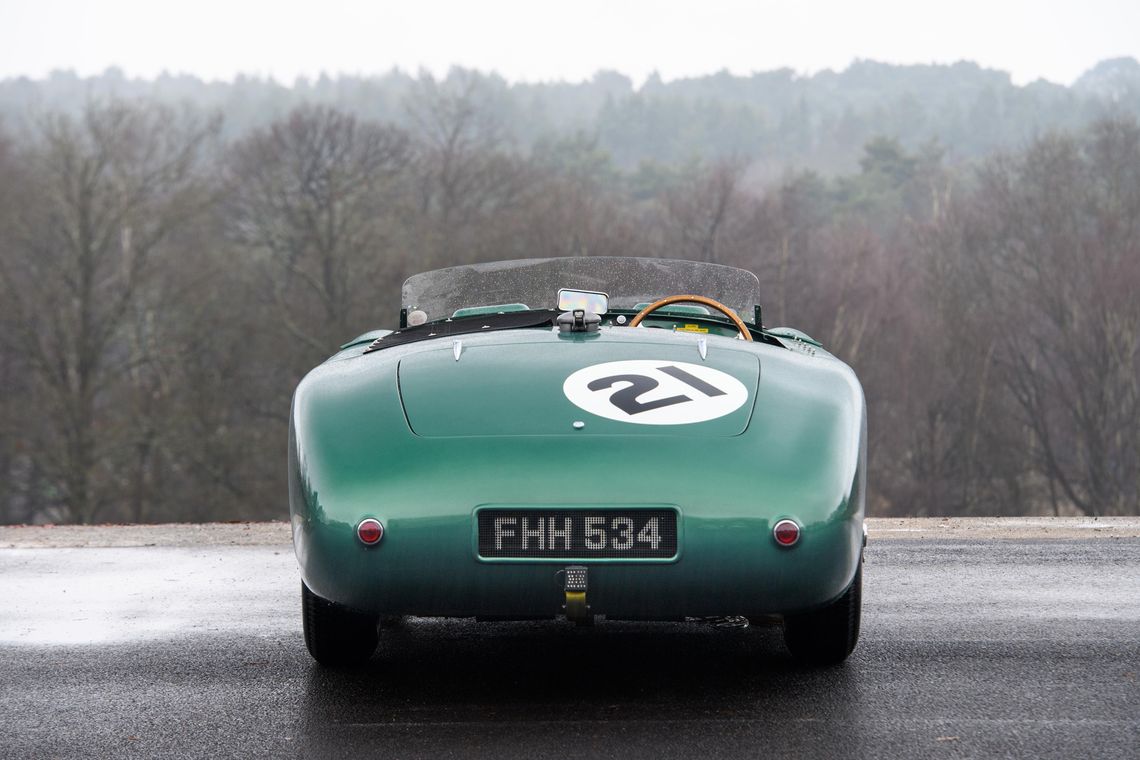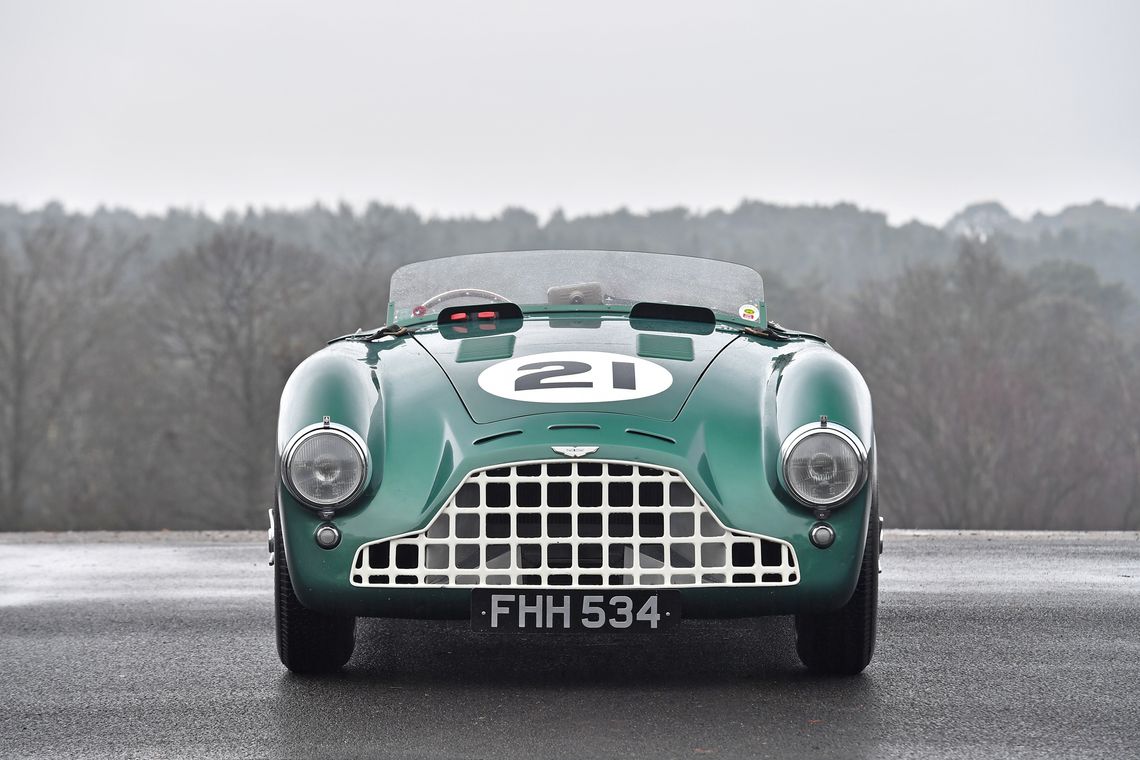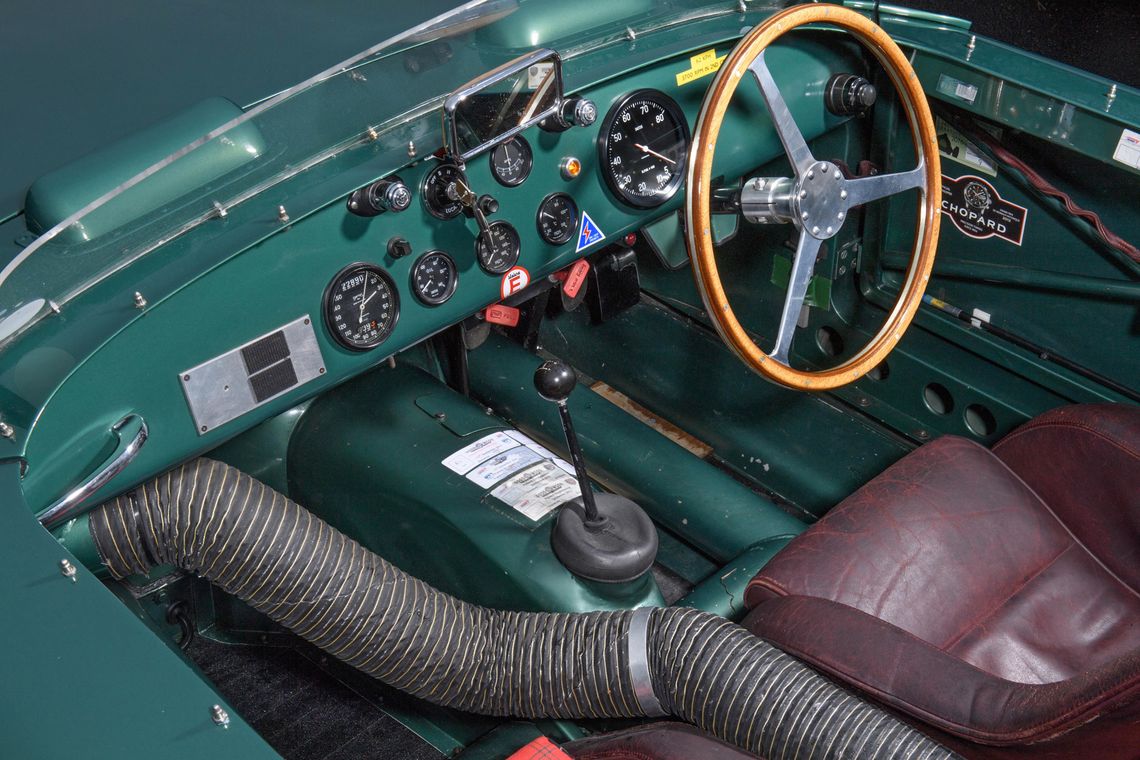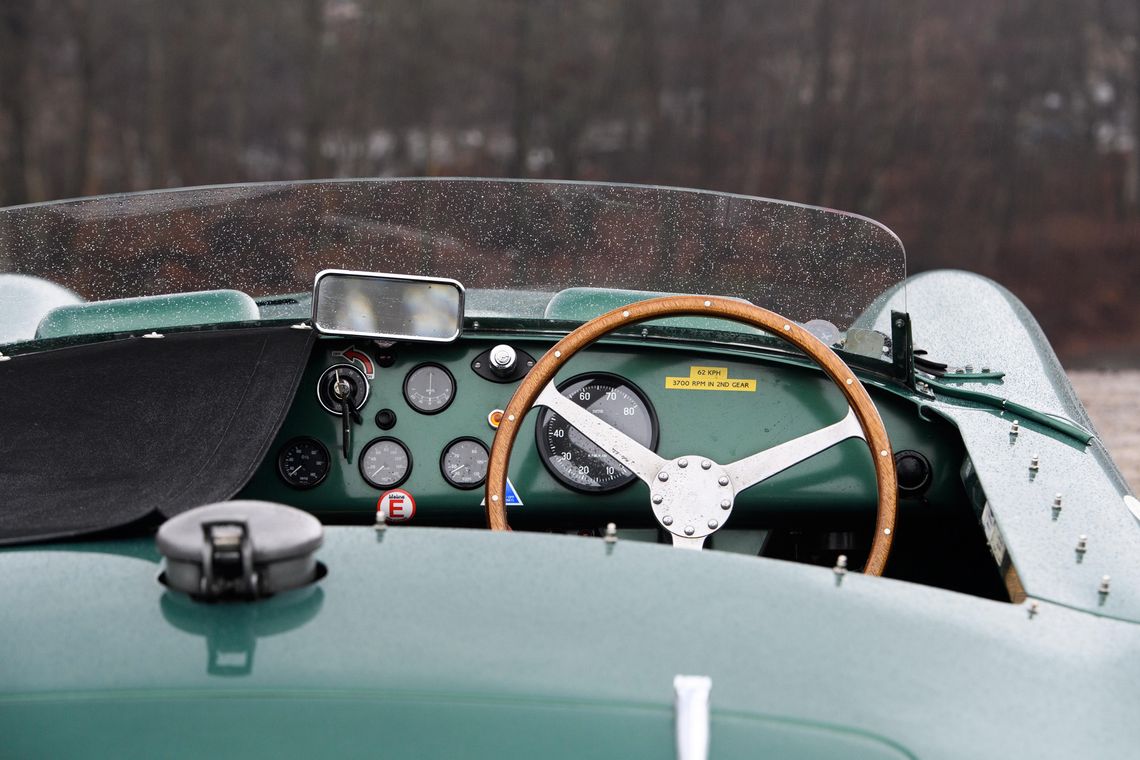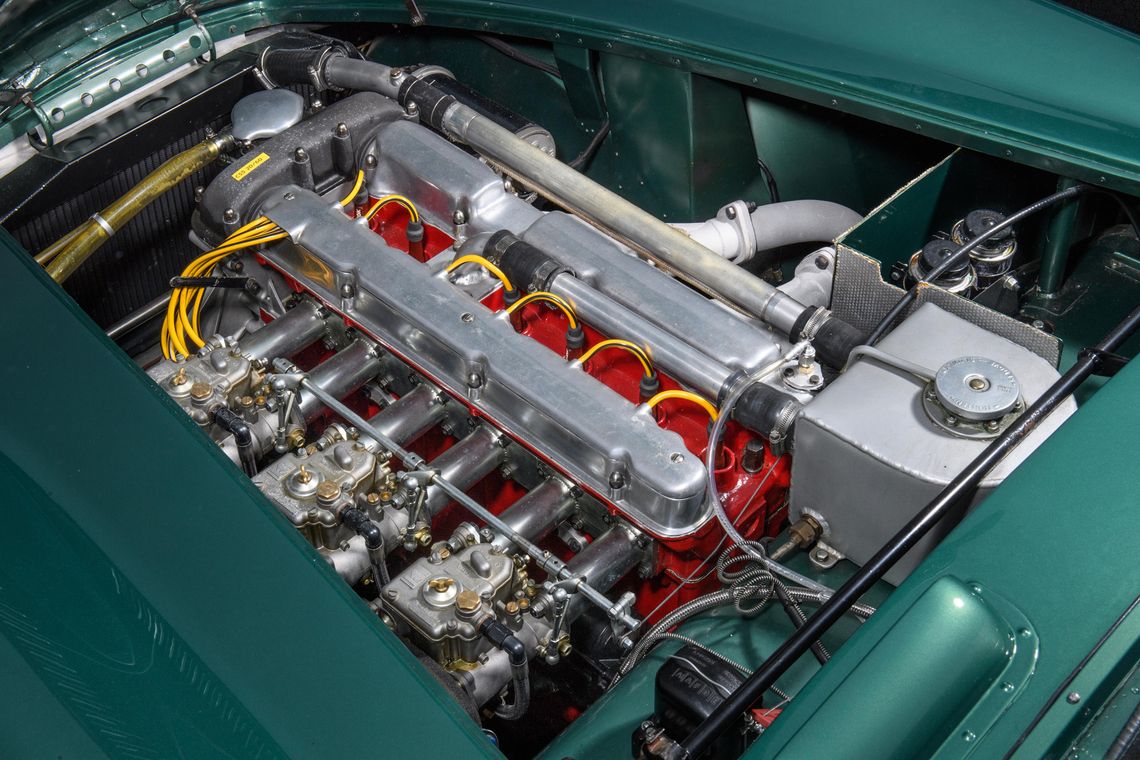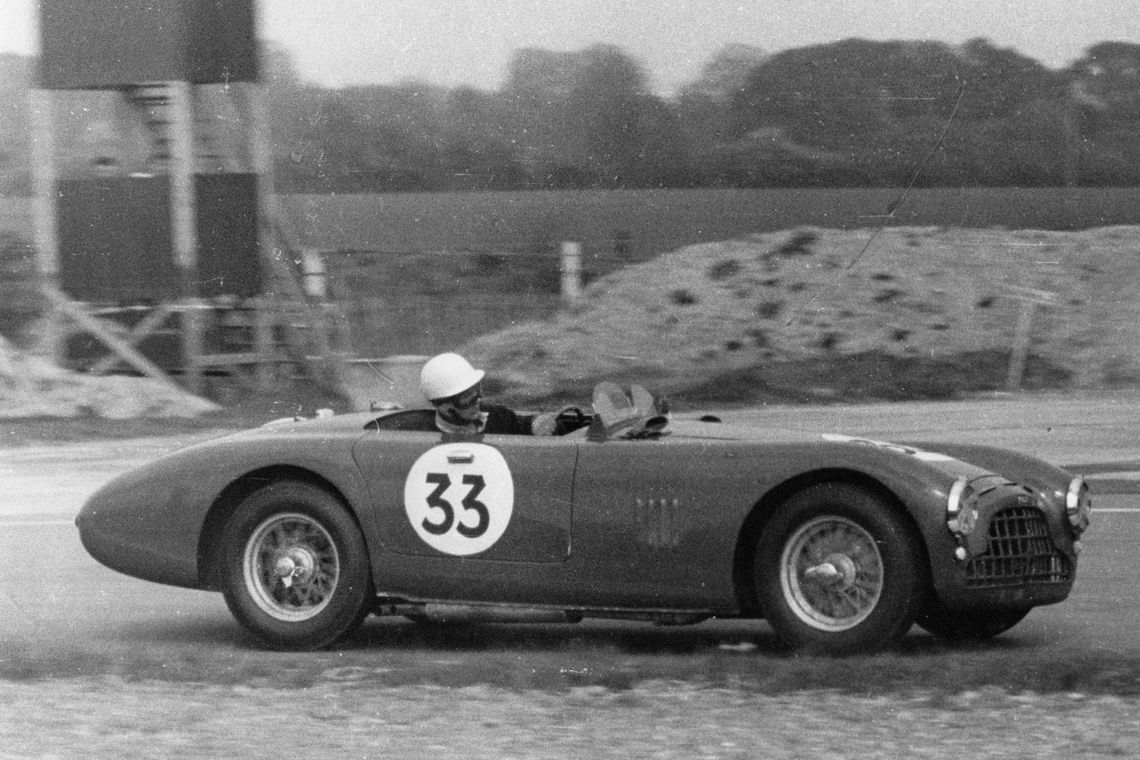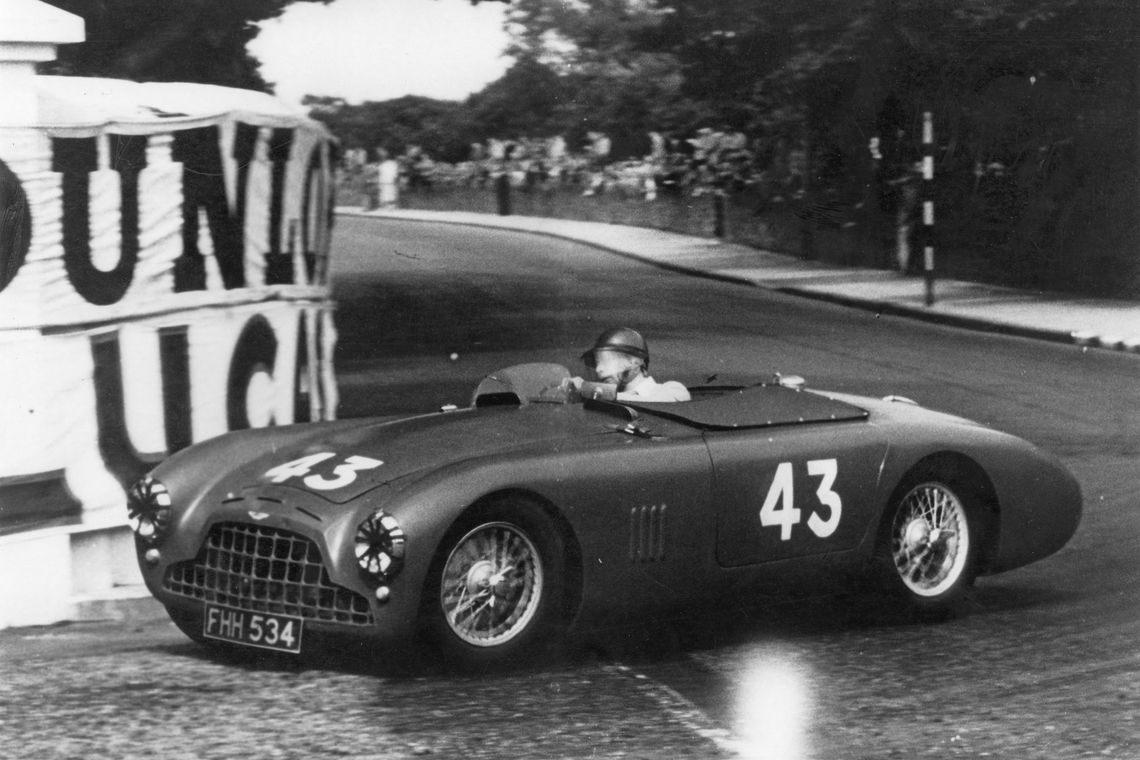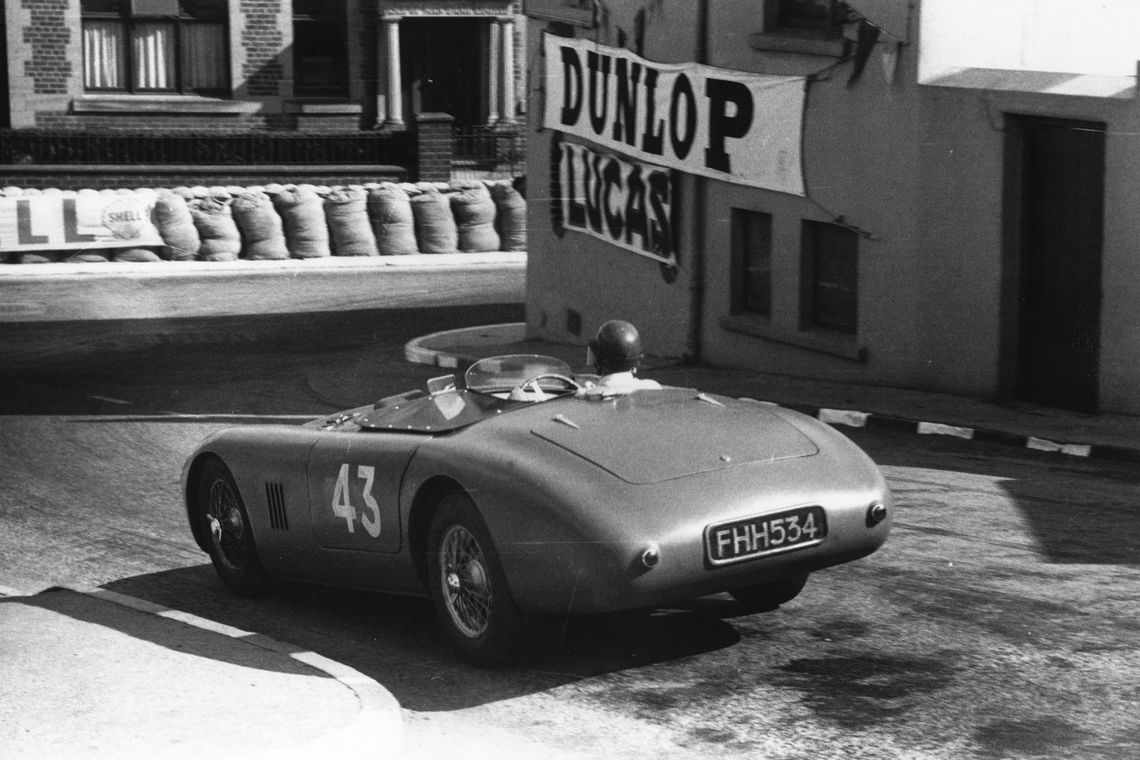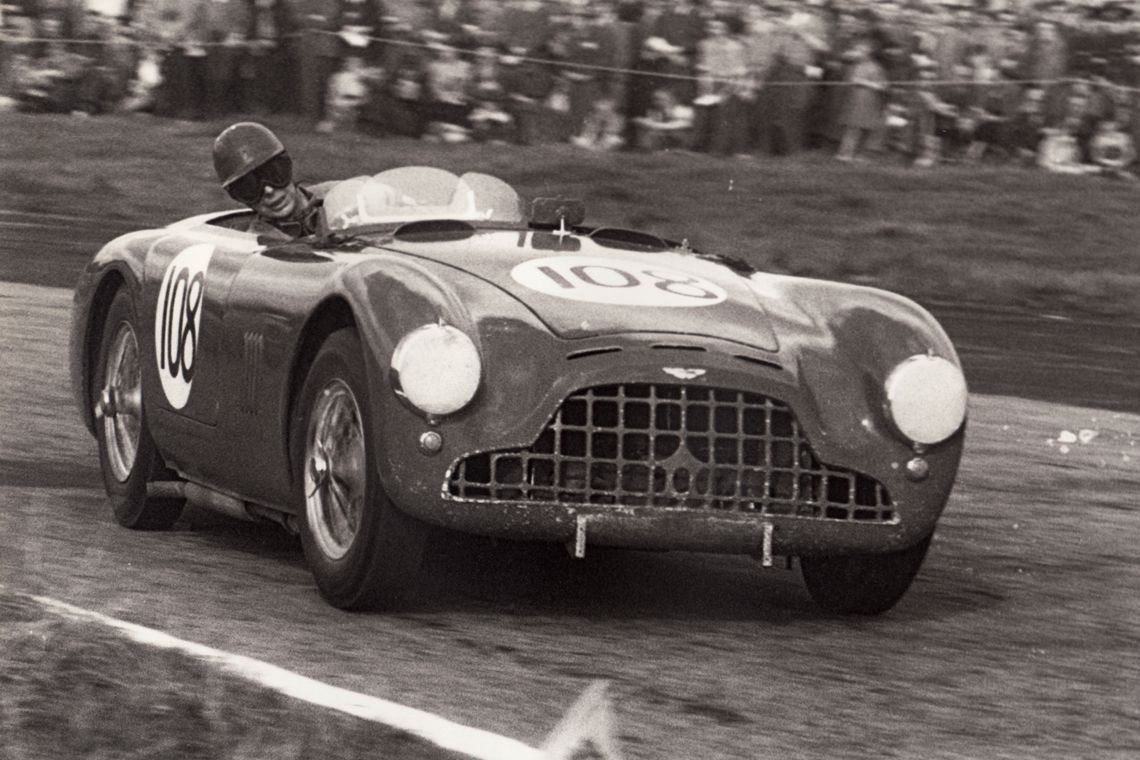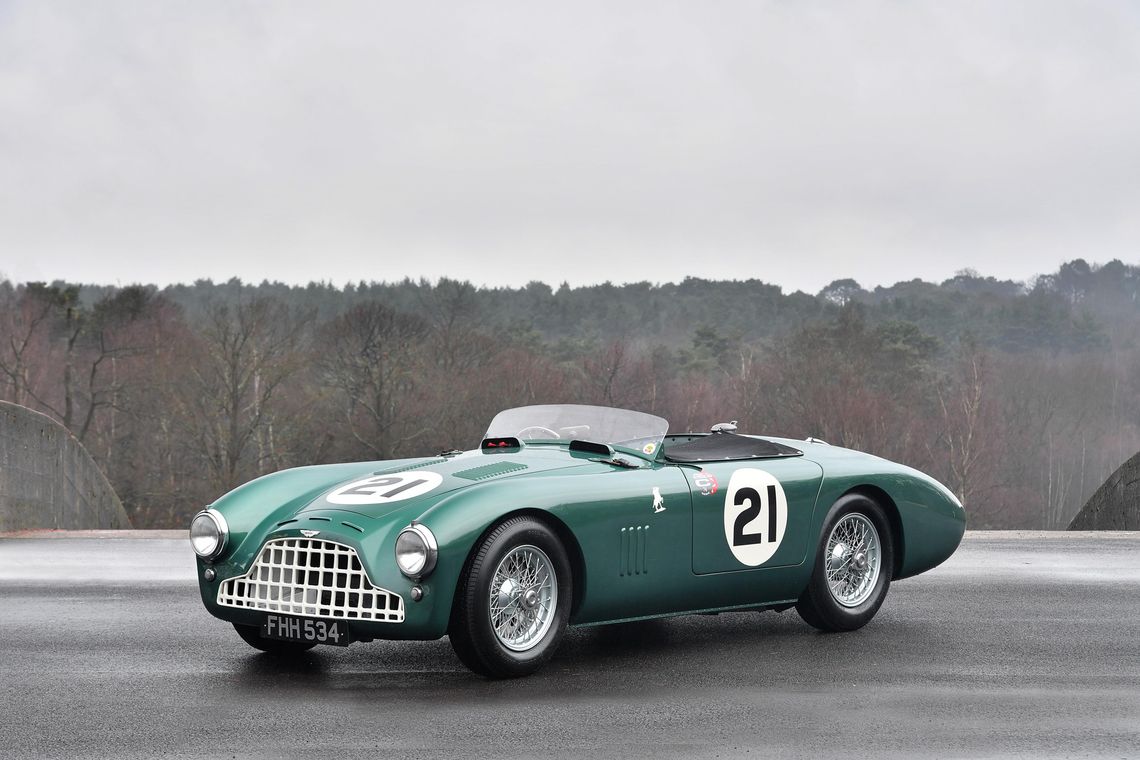
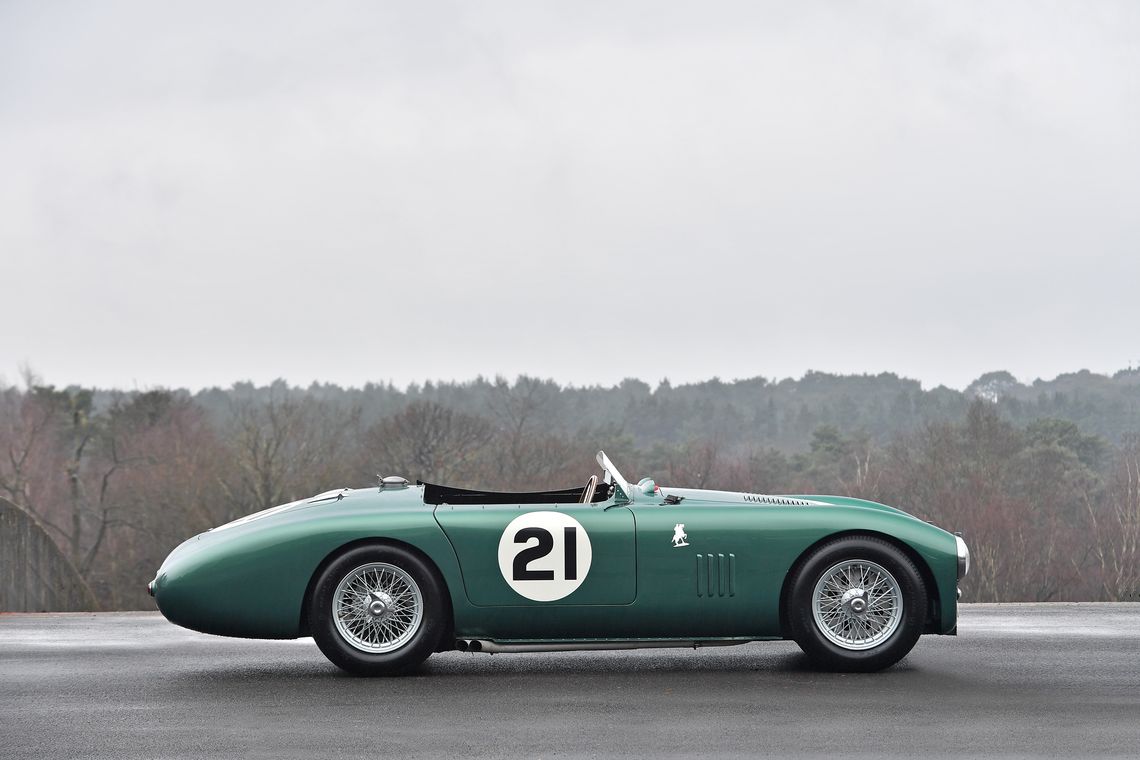
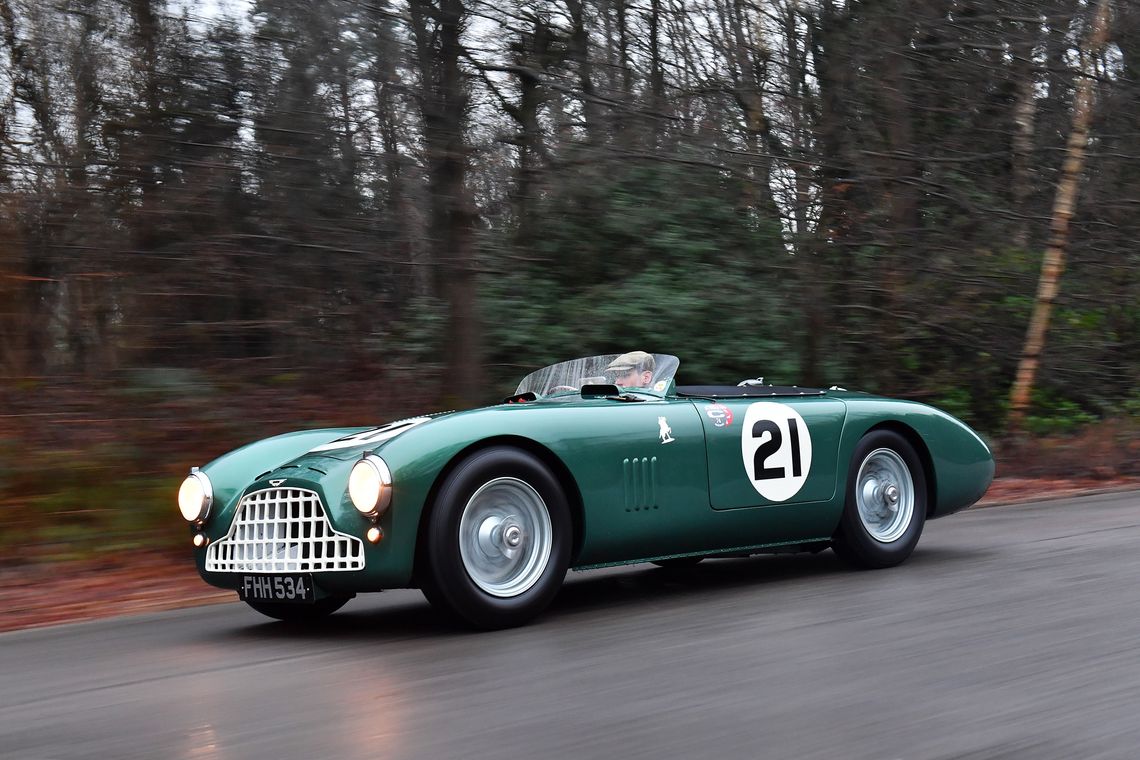




This wonderfully rare sports racing open two-seater Aston Martin is one of just eight remaining examples built by the iconic British sports car manufacturer, Aston Martin. The first of just five privateer DB3s built, DB3/6 entered existence at the very height of sports car racing in the last century. 1952 saw the first and only sports car Monaco Grand Prix to be run and 1953 heralded the launch of the inaugural FIA Sports Car World Championship. These DB3s were the first true ‘space-frame’ sports racers to be born out of this British icon and, as such, paved the way to sporting success for the Aston Martin marque.
Writing about the DB3 in his track test article in Motorsport magazine July 2011, renowned motoring journalist Andrew Frankel wrote, ‘…you cannot really argue its importance. Not only was it the first Aston to be built from the ground up as a pure racing car, it set off a chain reaction that would lead directly and without interval to Aston Martin winning not only Le Mans, but the world sports car championship eight years later.’
Enthused by racing successes with its modified road cars at the dawn of the decade, Aston Martin’s owner, David Brown, commissioned Robert Eberan von Eberhorst (who had worked with Professor Porsche on the design of the staggeringly successful D-type Auto Unions), to create an all-new purpose-built racer for the 1951 edition of the Le Mans race. The DB3, in structure, has a number of similarities to the Auto Union, with two longitudinal tubular chassis members, trailing arm suspension and a de Dion rear. Despite best efforts, the DB3 was not ready for the La Sarthe race in June, making its racing debut a year later than planned in 1952. Success was varied in this inaugural year, but seeds of brilliance were visible, demonstrated by DB3/5’s win at the Goodwood Nine Hour race in the hugely capable hands of a young Peter Collins and team mate Pat Griffith, and the achievement of second place overall at Sebring in that same year. Whilst the DB3 was undoubtedly heavier and under-powered in comparison to its direct rival, the Jaguar C Type, it was built for strength - a characteristic vital for success in endurance racing - and has been hailed time and time again for its outstanding handling abilities.
Originally fitted with 2.5 litre engines and then later with 3 litre straight six, twin-cam engines, these cars were heralded in period as being very nimble and exciting to drive. DB3/6, along with the final four examples built, were all fitted with the 3 litre engine from new, which in 1953 was also used in the new DB3S. Another variation from the earlier cars in this small later batch was the bodywork, which had more rounded sides and no ‘ridge’ in the body-side or air intake on the bonnet.
DB3/6 was ordered and sold new to Robert ‘Bob’ Dickson of Carlisle. Bob was a keen and competent privateer and as such was supported by the Aston Martin works, joined on occasion by works drivers, such as Desmond Titterington. In the extensive history file that accompanies the DB3, there is some lovely written correspondence from Titterington about DB3/6, which makes for interesting reading.
In synopsis, DB3/6 had a very busy time on track in 1953, finishing 8th in the Ulster Trophy Formula Libre race at Dundrod Circuit in May, 12th in the British Empire Trophy race at Douglas Circuit on the Isle of Man, and competing in the British Grand Prix Sports Car race at Silverstone in July. Highlights for the year must include the Tourist Trophy World Sports Car Championship race on the Isle of Man in September, where Dickson and Titterington placed 5th overall against some stiff competition. Dickson also collected the silverware for first in class at both Bo’ness and Rest and be Thankful Hill Climbs in Scotland, also setting new records at both venues. It is important to note that DB3/6 is listed in the official entry list for the 24 Heures du Mans as a reserve, with a Mr. Edgar B Wadsworth as the entrant, and with Wadsworth and Dickson listed as the drivers.
In 1954 the DB3 was sold to Robert H Dennis of Surrey and during his tenure, DB3/6 underwent some major engine and body changes, alongside its continued privateer career on track. Some years later, in 1988, the car was offered at auction by Coys of Kensington, minus engine and body, and was duly purchased by the Rex Collection of Stockholm. At this point, the DB3 was effectively mothballed. In 1992, Albert Sollevi of Lindingo, Sweden, purchased DB3/6. He commissioned noted marque expert, Jaye Engineering in the UK to rebuild the DB3 to its original specification where it was reunited with its original engine.
The bodywork was returned to its correct 1952 specification, completed by UK specialists, ‘Bodylines’. Following this rebuild in 1995, the Aston returned to the race track, regularly competing in Aston Martin Owners’ Club (AMOC) events.
After one further change of ownership in the UK, DB3/6 was sold in 2000 to Kyoto Takemoto of Tokyo Japan. Between 2001 and 2005, the Aston competed in all editions of the Lafesta Mille Miglia in Japan and had the honour of being driven by Sir Stirling and Lady Moss in the 2005 event. In 2006 DB3/6 travelled to the US, to join the stable of John Sinders of Houston, who was Chairman of Aston Martin North America at that time. In John’s ownership, the DB3 won first in class at Amelia Island, third in class at the Pebble Beach Concours and competed in the prestigious Mille Miglia.
The current owner purchased DB3/6 in November 2007 and, in his hands, the Aston has been campaigned extensively, being a regular competitive entry at many of the most prestigious events, including Le Mans Classic, Goodwood Revival and the Monaco Historique.
Meticulously maintained since by marque specialists, Rex Woodgate, this Mille Miglia eligible sports racing car is offered complete with both HTP papers and a FIVA Identity Card, providing a front-running entry at all of the prestigious historic motoring events.
